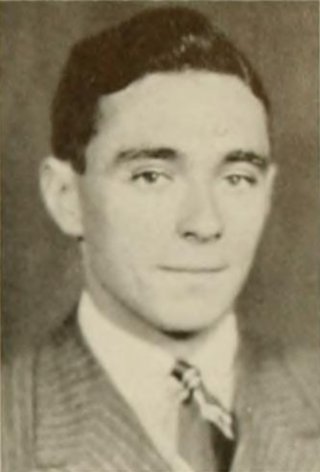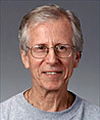Related Research Articles
Industrial and organizational psychology "focuses the lens of psychological science on a key aspect of human life, namely, their work lives. In general, the goals of I-O psychology are to better understand and optimize the effectiveness, health, and well-being of both individuals and organizations." It is an applied discipline within psychology and is an international profession. I-O psychology is also known as occupational psychology in the United Kingdom, organisational psychology in Australia and New Zealand, and work and organizational (WO) psychology throughout Europe and Brazil. Industrial, work, and organizational (IWO) psychology is the broader, more global term for the science and profession.

Jerome Seymour Bruner was an American psychologist who made significant contributions to human cognitive psychology and cognitive learning theory in educational psychology. Bruner was a senior research fellow at the New York University School of Law. He received a BA in 1937 from Duke University and a PhD from Harvard University in 1941. He taught and did research at Harvard University, the University of Oxford, and New York University. A Review of General Psychology survey, published in 2002, ranked Bruner as the 28th most cited psychologist of the 20th century.

Problem solving is the process of achieving a goal by overcoming obstacles, a frequent part of most activities. Problems in need of solutions range from simple personal tasks to complex issues in business and technical fields. The former is an example of simple problem solving (SPS) addressing one issue, whereas the latter is complex problem solving (CPS) with multiple interrelated obstacles. Another classification of problem-solving tasks is into well-defined problems with specific obstacles and goals, and ill-defined problems in which the current situation is troublesome but it is not clear what kind of resolution to aim for. Similarly, one may distinguish formal or fact-based problems requiring psychometric intelligence, versus socio-emotional problems which depend on the changeable emotions of individuals or groups, such as tactful behavior, fashion, or gift choices.
Diane F. Halpern is an American psychologist and former president of the American Psychological Association (APA). She is Dean of Social Science at the Minerva Schools at KGI and also the McElwee Family Professor of Psychology at Claremont McKenna College. She is also a former president of the Western Psychological Association, The Society for the Teaching of Psychology, and the Division of General Psychology.

An educational psychologist is a psychologist whose differentiating functions may include diagnostic and psycho-educational assessment, psychological counseling in educational communities, community-type psycho-educational intervention, and mediation, coordination, and referral to other professionals, at all levels of the educational system. Many countries use this term to signify those who provide services to students, their teachers, and families, while other countries use this term to signify academic expertise in teaching Educational Psychology.
Patricia A. Alexander is an educational psychologist who has conducted notable research on the role of individual difference, strategic processing, and interest in students' learning. She is currently a university distinguished professor, Jean Mullan Professor of Literacy, and Distinguished Scholar/Teacher in the Department of Human Development and Quantitative Methodology in the College of Education at the University of Maryland and a visiting professor at the University of Auckland, New Zealand.
Norman Henry Anderson was an American social psychologist and the founder of Information integration theory.
Ron Sun is a cognitive scientist who has made significant contributions to computational psychology and other areas of cognitive science and artificial intelligence. He is currently professor of cognitive sciences at Rensselaer Polytechnic Institute, and formerly the James C. Dowell Professor of Engineering and Professor of Computer Science at University of Missouri. He received his Ph.D. in 1992 from Brandeis University.
Charles M. Reigeluth is an American educational theorist, researcher, and reformer. His research focuses on instructional design theories and systemic transformation of educational systems to be learner-centered: personalized, competency-based, and largely project-based.

Robert S. Wyer Jr. is a visiting professor at the University of Cincinnati and professor (emeritus) at the University of Illinois, Urbana-Champaign. He received his doctoral degree from the University of Colorado. Wyer Jr.'s research interests cover various aspects of social information processing, including:

Howard Charles Wainer is an American statistician, past principal research scientist at the Educational Testing Service, adjunct professor of statistics at the Wharton School of the University of Pennsylvania, and author, known for his contributions in the fields of statistics, psychometrics, and statistical graphics.
Jingle-jangle fallacies are erroneous assumptions that either two different things are the same because they bear the same name ; or two identical or almost identical things are different because they are labeled differently. In research, a jangle fallacy is the inference that two measures with different names measure different constructs. By comparison, a jingle fallacy is the assumption that two measures which are called by the same name capture the same construct.
Concept-Oriented Reading Instruction (CORI) was developed in 1993 by Dr. John T. Guthrie with a team of elementary teachers and graduate students. The project designed and implemented a framework of conceptually oriented reading instruction to improve students' amount and breadth of reading, intrinsic motivations for reading, and strategies of search and comprehension. The framework emphasized five phases of reading instruction in a content domain: observing and personalizing, searching and retrieving, comprehending and integrating, communicating to others, and interacting with peers to construct meaning. CORI instruction was contrasted to experience-based teaching and strategy instruction in terms of its support for motivational and cognitive development.
Darcia Narvaez is a Professor of Psychology Emerita at the University of Notre Dame who has written extensively on issues of character, moral development, and human flourishing.
Gerald Paul Koocher is an American psychologist and past president of the American Psychological Association (APA). His interests include ethics, clinical child psychology and the study of scientific misconduct. He is Dean Emeritus Simmons University and also holds an academic appointment at Harvard Medical School. Koocher has over 350 publications including 18 books and has edited three scholarly journals including Ethics & Behavior which he founded. The APA's Hoffman Report implicated Koocher for his role in creating memos to justify sexual, physical and emotional abuse of prisoners.

Lynn R. Kahle is an American consumer psychologist and Professor Emeritus at the University of Oregon's Lundquist College of Business. From 2018 to 2020 he taught at the Lubin School of Business, Pace University in New York as a visiting scholar and professor.

M. David Merrill is an education researcher specializing in instructional design and technology.
Andrew S. Gibbons is an American practitioner and theorist in the field of instructional design and technology. He has proposed an architectural theory of instructional design influenced by the structural principles of artifact modularization drawn from a number of design disciplines, as exemplified by the work of Carliss Baldwin and Kim B. Clark.

Paul T. P. Wong is a Canadian clinical psychologist and professor. His research career has gone through four stages, with significant contributions in each stage: learning theory, social cognition, existential psychology, and positive psychology. He is most known for his integrative work on death acceptance, meaning therapy, and second wave positive psychology. He has been elected as a fellow for both the American Psychological Association and the Canadian Psychological Association.

Bertram C. "Chip" Bruce is an American educator, information scientist, and computer scientist, whose recent research has focused on democratic education. He is currently Professor Emeritus in Information Science at the University of Illinois and previously a Fulbright Distinguished Chair at National College of Ireland.
References
- Corno, L., & Anderman, E. (Eds.) (2016). Handbook of educational psychology (3rd ed.). Florence, US: Routledge.
- Alexander, P. A., & Winne, P. H. (Eds.) (2006). Handbook of educational psychology (2nd ed.). Mahwah, NJ: Lawrence Erlbaum Associates.
- Berliner, D. C., & Calfee, R. C. (Eds.) (1996). Handbook of educational psychology (1st ed.). Lawrence Erlbaum Associates
.